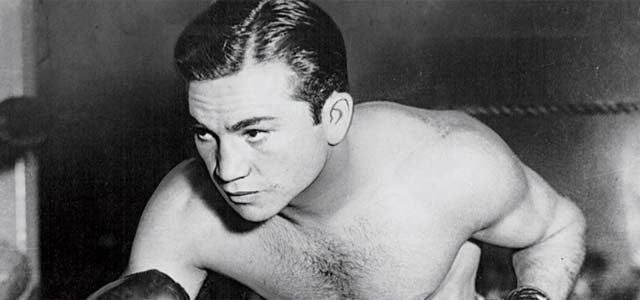In celebrating this Memorial Day this writer thought of former Lightweight, Junior Welterweight and Welterweight champion Barney Ross, 74-4-3 (22).
After the Japanese attacked Pearl Harbor in 1941 Ross enlisted in the US Marines and became a much decorated veteran. He was 32 years-old and had to obtain a special waiver on the usual requirement that Marines must be 30 years-old or under.
Although Ross was assigned to work as a boxing instructor, he requested to be sent into combat. He was sent to Guadalcanal Island, one of the most brutal military engagements against the Japanese.
On November 19, 1942, Ross and three comrades were attacked by Japanese troops while on patrol. His three fellow Marines were wounded and Ross shepherded them into a crater where he protected them throughout the night. He fired over 200 rounds of ammunition and was credited with killing seven Japanese snipers and ten probables. By the morning, two of his colleagues had died though wounded, he managed to carry the lone survivor to safety. For his brave efforts, Ross received the Silver Star, Purple Heart, and a Presidential Citation.
While recovering from malaria and his wounds in a military hospital, Ross developed an addiction to the morphine he was treated with. At the height of his addiction as a civilian, he was spending $500 per day. In September of 1946, he voluntarily appeared in the U.S. Marshal’s office in New York and requested admittance to a federal drug treatment facility. Ross was admitted to a U.S. Public Health Service Hospital near Lexington, Kentucky, and was discharged by Dr. Victor M. Vogel in January 1947. Doctors predicted it would take a year clean, but, though agonizing he kicked the habit in four months.
The 1957 movie Monkey on My Back was about his life and the addiction to morphine. Ross approved the script but was upset with the advertising. “The advertising makes it seem I am still a narcotics attic and that defeats the whole purpose of the picture,” he said. He sued the producers for $5 million, claiming defamation of character, but settled out of court for $10,000 in 1960.
“Ross had style, combatively and socially. His manners were impeccable; his generosity and thoughtfulness have become almost legendary.” Alan Ward (1967).
I want to give credit to www.boxrec.com for the above.



